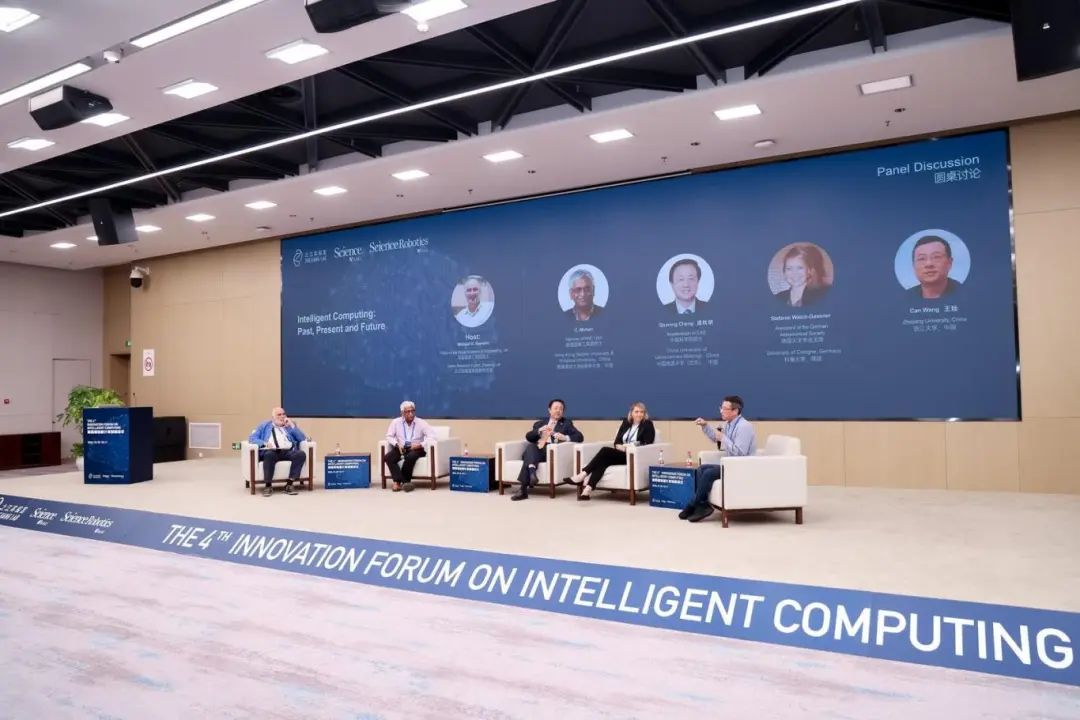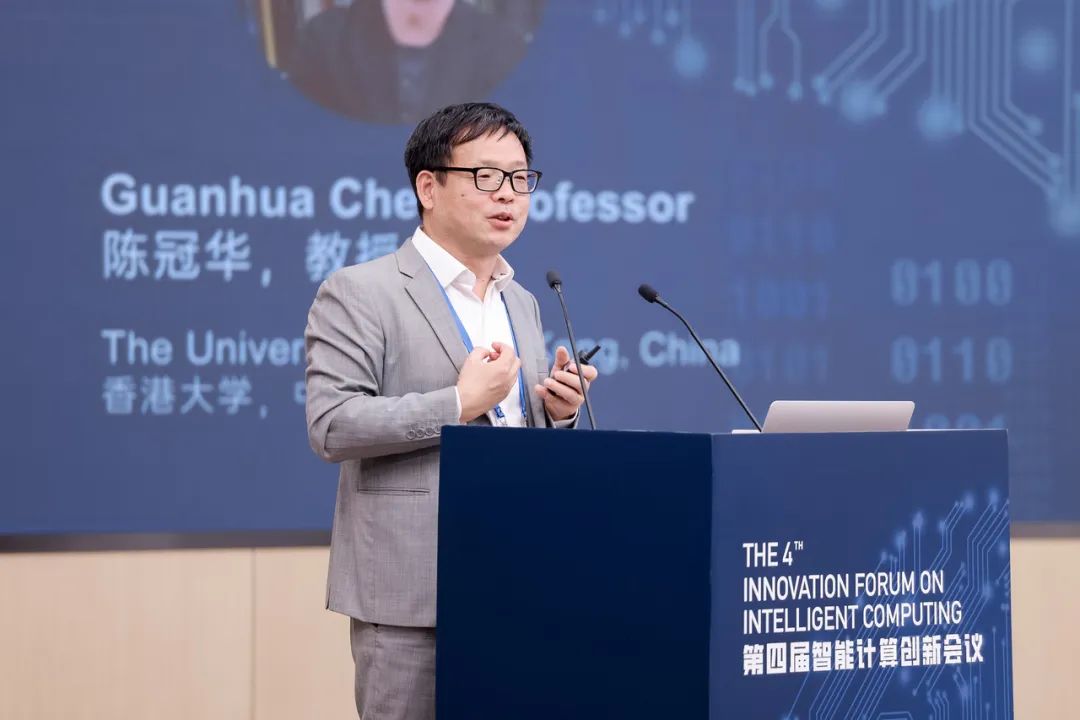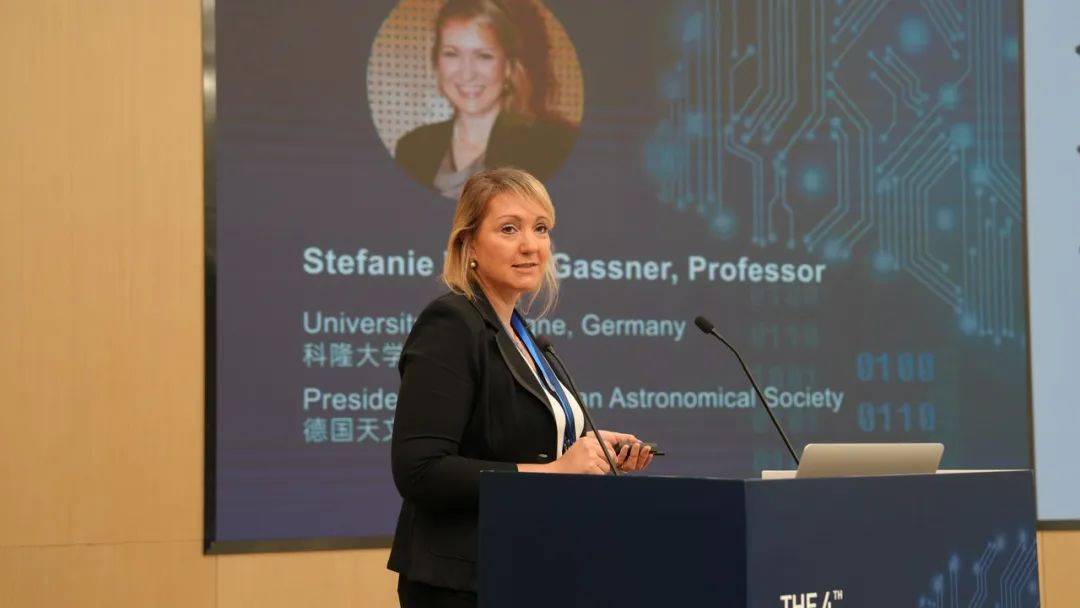

Science and Technology Daily: How Will Intelligent Computing Develop? A Panel Discussion on Open Science in Hangzhou
"Issues in science and technology can never be addressed by an organization alone. We need to open source our innovations and probe relevant cooperation mechanisms, enabling entities to work together for open science infrastructure." WANG Jian, Academician of the Chinese Academy of Engineering and President of Zhejiang Lab (ZJ Lab), stressed the importance of open science at the 4th Innovation Forum on Intelligent Computing co-sponsored by ZJ Lab and the American Association for the Advancement of Science on Oct 10 in Hangzhou, Zhejiang Province.
What is the essence of intelligence? How does AI speed up scientific discoveries? What is the future of intelligent computing? During the two-day conference, top experts and scholars in different niche areas focused on computing issues and shared their research to inspire ideas. Before the conference, the 2024 Nobel Prizes in physics and chemistry were awarded for the use of artificial intelligence (AI). At this forum, scientists from China, the United States, Germany, Japan and other parts of the world in the field of intelligent computing, all happened to mention the Nobel Prize and the exciting encounters it brought about.

WANG Jian said that we have entered the era of the Third Paradigm that is "computing-intensive, data-driven and model-based", and AI can expand human creativity. Data is important, but computing helps researchers "calculate" models and also helps us rethink how to build models. This requires special attention to "scale". The superposition or integration of several elements is the key to developing AI.
In regards to data, C. Mohan, a Member of the United States National Academy of Engineering and Professor at Hong Kong Baptist University and Tsinghua University, shared his over 45 years of research and practical experience in databases, and introduced his recent work on data management concerning intelligent computing, including global data legislation and policy trends, integrated multimodal database management system, and deeper integration of AI and databases.
In the field of earth system science, it is a great challenge for scientists to elucidate the complex interactions among atmosphere, hydrosphere, geosphere and biosphere, understand the causes of and accurately predict extreme events, and study the long-term evolution of the Earth system. CHENG Qiuming, an Academician of the Chinese Academy of Sciences and Professor at the China University of Geosciences (Beijing), presented the development from plate tectonics theory to earth system theory, and shared some data-driven geoscience research based on case studies, including singularity theory.
He introduced the "Deep-Time Digital Earth" (DDE) program led by the International Union of Geological Sciences (IUGS), as well as the work on GeoGPT in which AI technology is used to transform the research paradigm in the field of geoscience, indicating that the integration of big data, foundation models and great computational power provides new opportunities for breakthroughs in earth system science.
"'Computing by Intelligence, Computing for Intelligence' is not only the theme of this forum, but also the core of ZJ Lab's research on intelligent computing. We earnestly expect that participants could make joint efforts to enrich the technical connotation of intelligent computing, foster international cooperation in intelligent computing, and facilitate the widespread adoption of intelligent computing, so as to contribute wisdom and strength to serving global development with AI, improving human wellbeing, and building a closer community with a shared future for mankind," TONG Guili, Secretary of the Party Committee of ZJ Lab, said in her opening speech.
Zhejiang International Communication Center: Experts discuss intelligent computing in Hangzhou
The 4th Innovation Forum on Intelligent Computing commenced on Oct 10 at Zhejiang Lab in Hangzhou, Zhejiang province. This two-day event features an array of sessions and technology showcases.

Chen Guanhua, professor from Hong Kong University, said that China's manufacturing sector includes a wide range of products such as mowing robots, robot vacuum cleaners, and drones, which are globally prevalent. He believes these products have enormous potential in the field of robot artificial intelligence.

Stefanie Walch-Gassner, president of the German Astronomical Society and professor of the University of Cologne, said: "In the field of astronomy, AI has begun to undertake some of the supercomputing tasks, but it is not yet capable of fully replacing humans. In many aspects, the role of scientists remains crucial."











